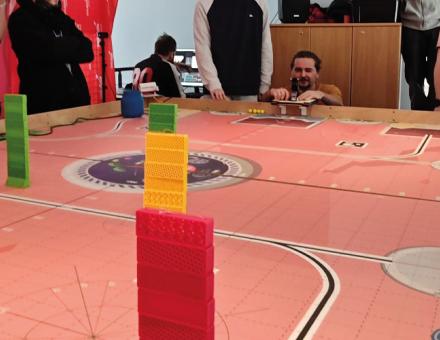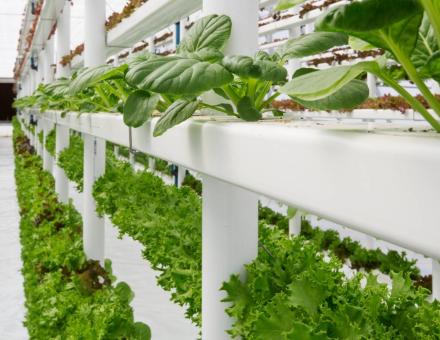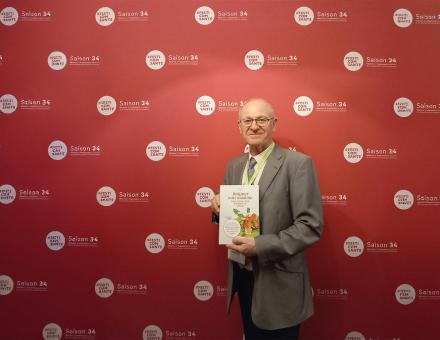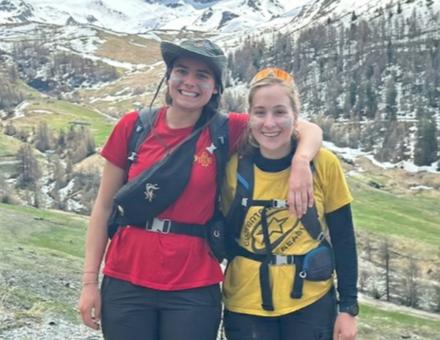The winning team of the Butterfly 2050 Innovation Grand Prize, comprising three Lasallian students from the Beauvais and Rouen campuses, worked on how we will feed ourselves in 2050.
“Mobilizing the younger generation around building a desirable and unifying future” is one of the main ambitions of the Butterfly 2050 competition, launched in 2024 by the French government.
Between February and May 2025, nearly 110 young people divided into 21 teams reflected on a prospective scenario on one of the four proposed themes. Among them, three Lasallian students distinguished themselves by winning the Grand Prize for Innovation with their team, rewarded for the pragmatism, coherence, and disruption of the model they proposed.
Gabrielle Pothier, Salomé Poitrenaud (both in their fourth year of Agri-Food and Health Engineering at UniLaSalle Beauvais), Fleur Grange (fourth year of Agronomy and Agri-Industry Engineering at UniLaSalle Rouen), Elise Boizet and Adrien Delabie (BTS MHR at the Lycée Hôtelier du Touquet), Emmy Pelletier (design student at Strate Design) and Thomas Rolli (modern literature student at CY Design) chose to work on the theme “Food in 2050.”
Thomas Viveret, Sustainable Development and Social Responsibility Officer at UniLaSalle, was their project advisor.
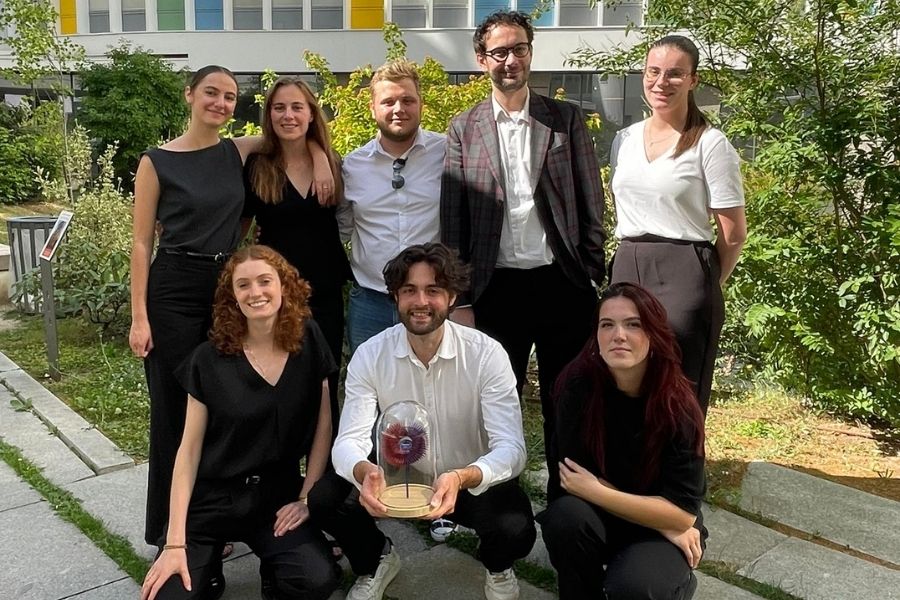
A bold reflection on the food of tomorrow
The team's vision? "The 21stcentury is at a crossroads, facing multiple challenges: climate change, resource scarcity, biodiversity loss, growing inequality, access to food, and an increase in chronic diseases. Our vision focuses on the place of the individual and their relationship with their most basic need: food. We go as far as to question the value of food in our daily lives, namely pleasure and tradition, based on a return to more modest practices, complemented by new technologies that serve life and well-being."
This vision is illustrated by a scenario combining prospecting and fiction, as requested in the competition brief. Context, innovations envisaged, skills required, etc. The students worked on these different aspects from an original angle, where two food models clash: that of a resilient France in 2050 and that of a dystopian country that has retained a model based on waste, overconsumption, and the destruction of life.
Butterfly 2050: a competition to invent the future
At a time when our societies are facing major challenges and technological advances are transforming our lifestyles, the French government launched “Butterfly 2050” in 2024, a competition inviting students to imagine the France of the future.
Teams of students from different educational backgrounds will work together to imagine a future scenario based on one of the following four themes:
- Care in 2050: imagine innovations in health, prevention, and well-being in a world where humans, animals, and the environment are interconnected;
- Living together in 2050: projecting social and working relationships and the livability of tomorrow's world;
- Learning in 2050: envisioning revolutions in learning and educational environments;
- Eating in 2050: exploring the evolution of diets, food technologies, and new citizen-driven, local, and global agricultural practices.
Participants were able to draw on the valuable advice of recognized experts in their fields through masterclasses and consultations.
Beyond mobilizing young people on issues of the future, Butterfly 2050 aims to:
- Encourage innovation and creativity;
- Promote interdisciplinarity and collaboration between different profiles (pupils, students, and apprentices);
- Stimulate forward thinking and the emergence of innovative solutions to the challenges of tomorrow.
Butterfly 2050 is the result of interministerial collaboration involving the French ministries of National Education, Higher Education and Research, Ecological Transition, Biodiversity, Forestry, Sea and Fisheries, Agriculture, and Food Sovereignty. It is operated on behalf of the State by the Caisse des Dépôts et Consignations and the Cité européenne des scénaristes.



